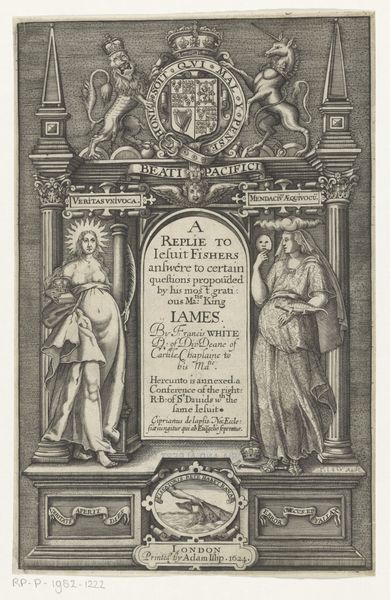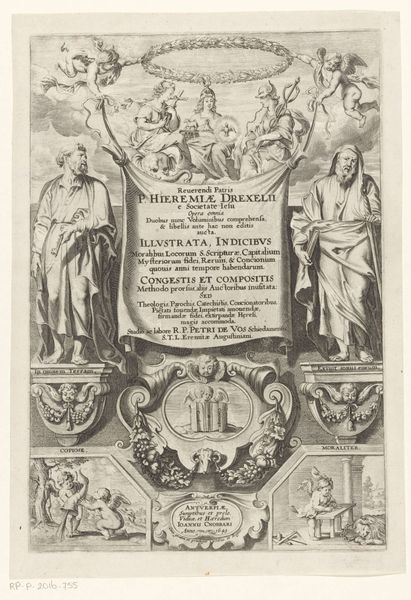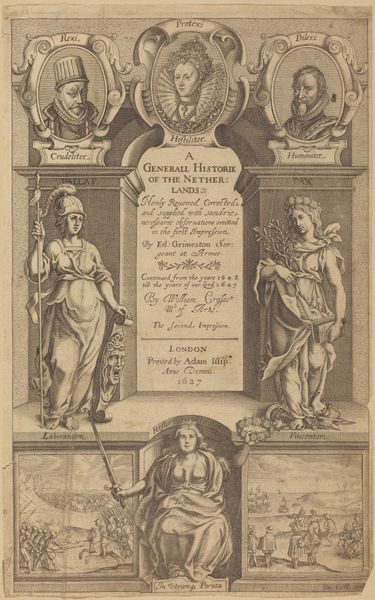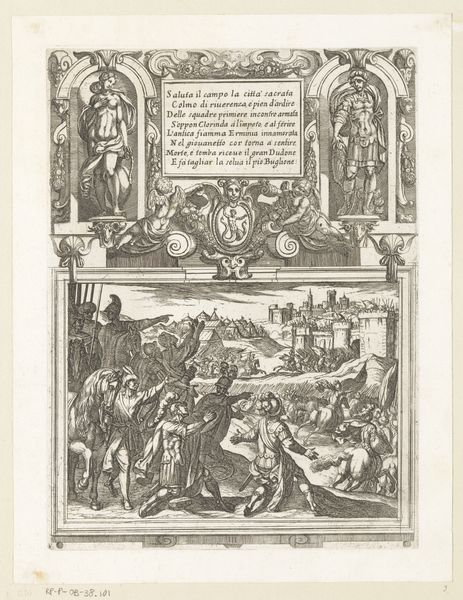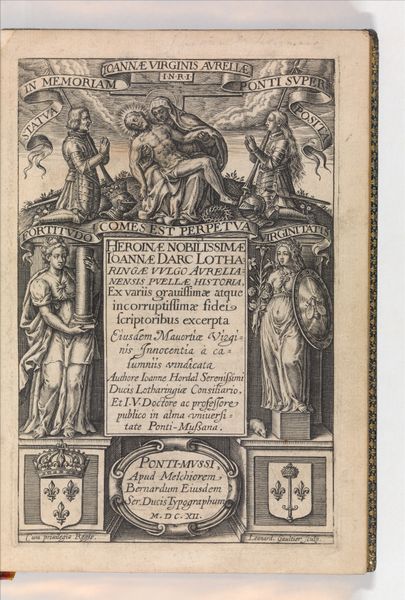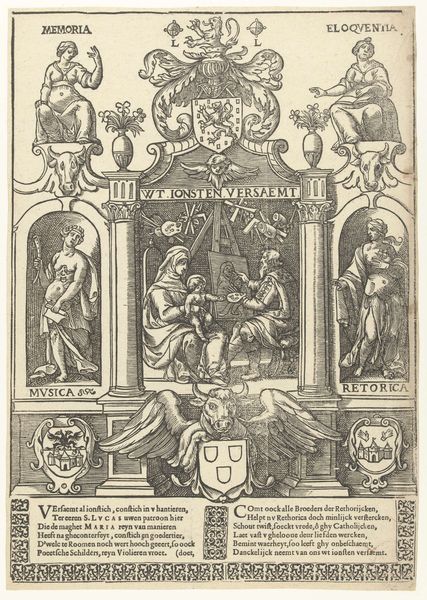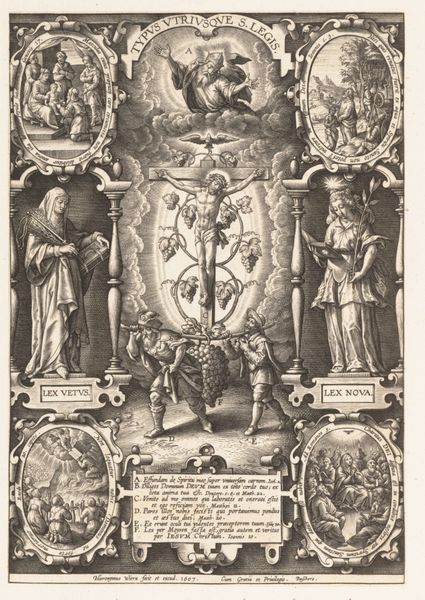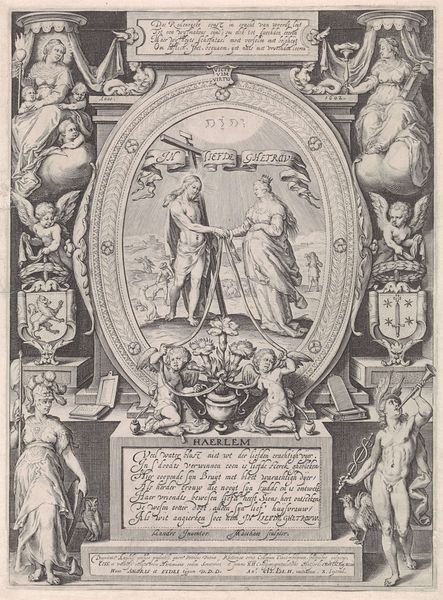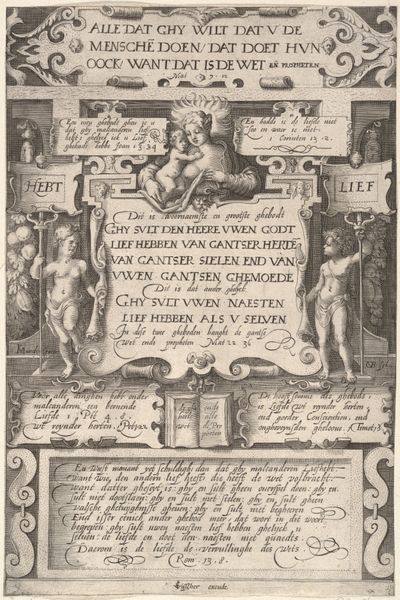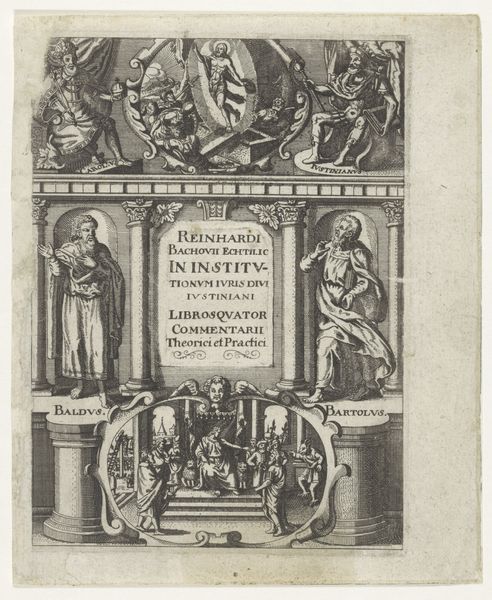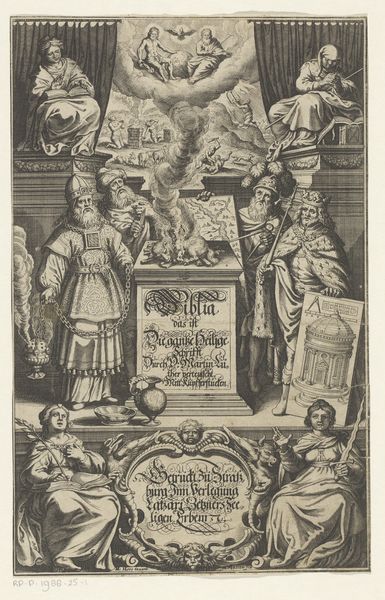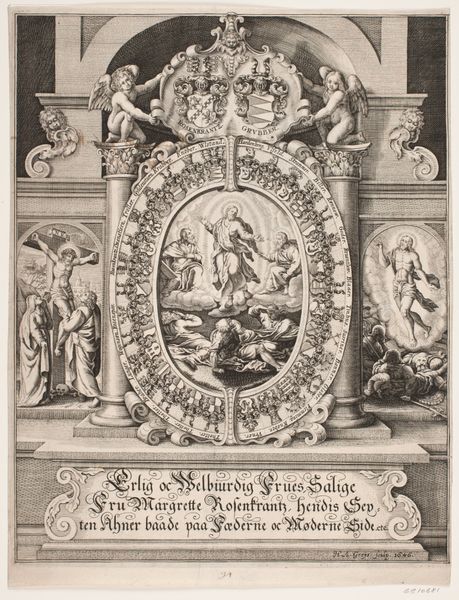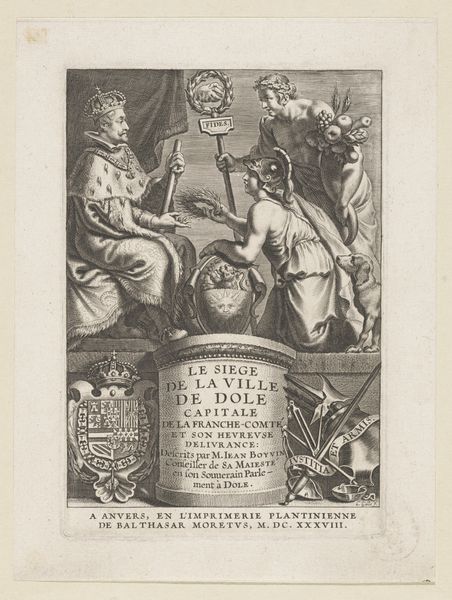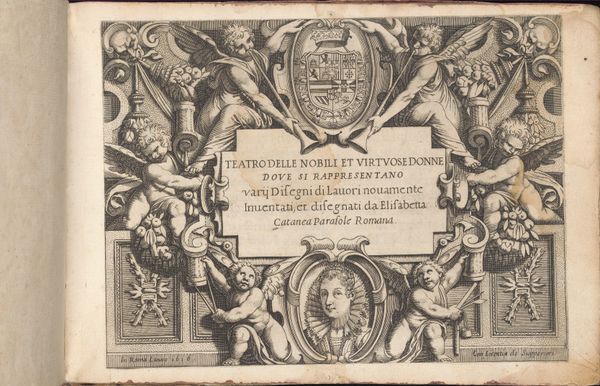
Maximilianus van Pongau en Leopold III van Oostenrijk c. 1610 - 1650
0:00
0:00
cornelisgallei
Rijksmuseum
print, intaglio, engraving
#
portrait
#
baroque
# print
#
pen illustration
#
intaglio
#
old engraving style
#
figuration
#
line
#
engraving
Dimensions: height 188 mm, width 138 mm
Copyright: Rijks Museum: Open Domain
Editor: Here we have "Maximilianus van Pongau en Leopold III van Oostenrijk", an engraving made by Cornelis Galle I, sometime between 1610 and 1650. It's interesting; it feels like a propaganda piece, but I'm unsure for what purpose. What do you see in this work? Curator: It is indeed likely propaganda. Considering the historical context, we must see this image within the framework of the Counter-Reformation and the Habsburg dynasty's efforts to solidify their power and Catholic identity. The two figures are clearly presented as pillars of Austrian virtue, with the Latin inscription acting as a kind of mission statement. Editor: So, the image is trying to create a certain narrative around these figures and, by extension, Austria itself? Curator: Precisely. Think about the symbolic weight of presenting Maximilianus, a patron saint of Salzburg, alongside Leopold III. This is about linking earthly power with divine authority. Who was the target audience, and what messages would they decode when looking at this image? Editor: It’s interesting to consider that these prints were meant to actively shape perceptions. The deliberate placement of religious figures aims to cultivate religious legitimacy. Is that right? Curator: Exactly! Images like these were powerful tools in shaping public opinion and reinforcing dominant ideologies. The museum then becomes another location that impacts its reception and what meaning viewers derive. Editor: I hadn't considered how directly art can engage in statecraft like this. That's a real eye-opener! Curator: It demonstrates that art isn’t just decorative; it's a participant in cultural and political discourse. Thinking about its use is important.
Comments
No comments
Be the first to comment and join the conversation on the ultimate creative platform.
